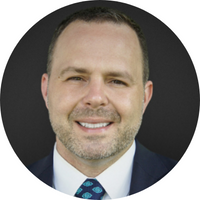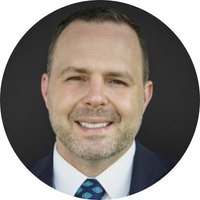
Having chaired the ACS Younger Chemists Committee, what insights would you like to share with industry managers/executives about what these early career chemists most value at the early stages of their careers?
My tenure with the ACS Younger Chemists Committee (YCC) provided me some of the most memorable learning experiences of my career, as the YCC is a group of accomplished and inspirational leaders that just happen to be at the early stages of their training or careers.
I think it’s common for managers and executives to draw upon their experiences and memories when thinking about how to engage and motivate younger chemists. This is a great approach, as it reinforces authenticity and acknowledges our mutual humanity. Yet, it is also important to recognize that the world is drastically different than what it was back when they first entered the workforce and donned their first set of “official” PPE.
In today’s world, the boundaries created by traditional institutions are more and more blurred. Early career chemists truly value organizations and leaders that create a compelling vision that inspires them to endure challenges, grow, and understand how their commitment and choices are creating more than just a company that they work for, but also a community that they believe in.
Within these environments, helping early career chemists understand how they can make an impact is also incredibly valuable. This starts with gently introducing company history, hierarchy, and institutional knowledge, but having an openness to the new ideas they bring. Early career chemists are a walking juxtaposition of confidence and insecurity, so teaching them how to stand on their own two feet as professionals when they just figuratively “learned to walk” in an industrial environment will help them recognize their strengths and to use them in effective ways that ultimately will help your organizations thrive.
Conversely, having spent lots of time with senior managers and executives in industry, what have you learned from those interactions -- about what management values -- that early career chemists should know?
I have had a wonderful career so far that has challenged me both personally and professionally. Along this journey, I have been lucky to have exposure to senior leadership due to the nature of my work and my ability to deliver in those environments. These experiences have provided me with a perspective on what I have learned that I try to share with early career chemists during mentoring sessions, workshops and trainings that I facilitate.
I find it fascinating, many of the overlapping values that exist at the two ends of the career spectrum. Senior leaders have been able to successfully build their careers from their strengths, while mitigating any vulnerabilities that they may have by surrounding themselves with people that complement these strengths, who incorporate their own to impact projects, organizations, and business objectives. I have observed many effective leaders value other leaders that are able to do the same thing by using their strengths to make a difference and a positive change for the organization.
The sooner an early career chemist can understand their strengths and develop self-awareness, the sooner they may be given an opportunity to leverage these skills as part of a career milestone moment.
You haven’t been at DuPont that long (over 1.5 years), though you have been there long enough to note any major cultural differences between it and Dow, where you spent 8.5 years. What jumps out at you?
I’ve been lucky to have a career that has spanned across two of the most iconic manufacturers within this industry: Dow and DuPont. My transition over to DuPont only came about due to the historic merger and subsequent spin that resulted in the reinvention of both companies and the birth of a third, Corteva Agriscience.
Being a part of both companies, I have been able to develop some great friendships, partnerships, and mentorships that provided me some of the greatest joys of my career. Both have incredibly strong cultures of innovation, excellence, and community that have allowed them to be leaders in the chemical industry since their inception. Both cultures put utmost care and concern for their people, in both creating exceptional safety cultures and championing diverse and inclusive communities that provide equity and respect across their organizations. Both place value on delivering innovative and effective solutions for customers, both internally and externally.
Of course, there are slight differences in interpretation, implementation, or the inevitable TLAs (Three Letter Acronyms) that are used to expedite communication, but the similarities are what jump out to me the most. I think this is why the merging of the legacy companies went relatively smoothly, as there were so many common items that could be used to develop a transient culture that gave birth to the new companies upon their eventual spin.
You spent nearly six years at the University of Minnesota pursuing your PhD before eventually graduating and pursuing a career in industry with Dow? What made you choose this career path?
While in graduate school at the University of Minnesota, I started to think about what I actually wanted to do with my life and what I enjoyed doing. I LOVED science and doing research, but I found myself reading more and more about the application of science outside of the lab and how different agencies impacted its development. This led me to a crazy idea of taking a “sabbatical” from my graduate education to pursue a Fulbright Scholarship in Norway, where I enrolled in an English-speaking, international master’s program on Globalization at NTNU in Trondheim. My advisor thought I was nuts, especially because I was on track to finish my Ph.D. in under five years, but he ultimately knew how important my Ph.D. was to me and gave his support, knowing that I wouldn’t be leaving for good.
Fast forward a year later, after I had finished my Fulbright experience and I was back at UMN, I was very motivated to pursue a career in science policy, as this was something that I believed was the ultimate nexus of what I wanted to do. Despite my best efforts, I failed to secure one of the handful of science policy fellowships available at the time, but this didn’t completely derail me, as I had matured in my understanding of how science, society, and governments interact, so I set my sights on the institution that transformed scientific innovations in everyday applications that make our lives better: the chemical industry.
During interviews, I was very honest about my aspirations and where I wanted my career to eventually lead, and fortunately for me, one of the first companies that I interviewed with believed in this same vision and offered me my first job as a Research Scientist within Dow’s Core R&D organization that has led me on my path as an industrial scientist and business leader.
What personality trait has served you best during your time in industry? What is a personality trait you most wish you had in greater supply?
As I think back on over a decade of performance reviews, there is always one phrase that consistently appears near the start of every manager’s evaluation of me and my contributions: enthusiastic optimism. I have an inner compass that continues to point out opportunities where others may see failures, accomplishment where others may see defeat, and clarity where others may find chaos. I have been encouraged to continue to build on my described “highly infectious and optimistic approach” to managing teams and projects as being a clear differentiator in my leadership style, and this has ultimately served me well to date.
Of course, this sometimes leads some people to prematurely make a judgement that I may be naïve, but I have continued to temper blind optimism with analysis grounded in data to create a healthy balance, although biased towards optimism; that has been effective for me to silence critics and guide my development.
If I think about what I wish I had more of, it doesn’t take much time to realize that I need more patience. I’ve seen so many effective leaders that are able to let the world around them settle to a more manageable state before they start to affect their surroundings in a highly efficient way. I have always been one to dive right in (likely due to my overabundance of enthusiastic optimism) with the confidence that I would be able to “right the ship” later on if things got rough.
When forced into situations where I have had to exhibit patience, I have observed myself becoming restless and irritated, so this is something that I continue to work on in the hopes that one day I will be able to draw upon a greater supply of patience to weather those storms.
How have your parents influenced your leadership style?
I cannot even begin to describe how much my parents have impacted my leadership style, let alone my life, but there are a couple of things that I see in them that I continue to aspire to and ultimately have helped me in my leadership development. I am so grateful for their continued love and support in all the things that I do.
I recently took a leadership style assessment that characterized me as “outgoing, enthusiastic, optimistic, high-spirited, and lively”, which I felt was a fair summary in describing how I engage with others while leading, but did not address what I thought I also try to embody in an eagerness to lead by example while in ambiguous situations.
I have found myself in more and more of those situations as my career has progressed, so rolling up my sleeves and jumping right in to wrestle with the challenges alongside my team is an approach that I have continued to embrace. To do this, I feel that I learned a lot about working hard, taking on situations as they come at you, and doing your best to overcome them from my father, as I have almost never heard him complain about hard work being done in the pursuit of a good cause and benefit of others.
The “outgoing and enthusiastic” part would definitely come from my mother, as there is hardly a time we can go to the grocery store together for a loaf of bread without her stopping to talk to, at a minimum, three people about different projects they are working on in their personal lives that she is interested in and hopeful that they will find success. I find myself doing this a lot as it is my instinctual way to build up relationships and cultures across my teams.
In a short ACS video, you urged young chemists to focus on developing non-technical skills such as leading peers, managing projects, and communicating with others. How would you assess the job that universities are doing, alerting students to these skills?
Wow, I forgot about that video but good to know that nothing truly disappears on the internet! I still agree with the approach that “technical skills may get you in the door, but non-technical skills will enable you to soar,” so continuing to improve your ability to lead while building up your professional toolbox is something that students need to pursue as soon as possible. Their mentors and teachers play a critical role in their development and there is a need to continue this throughout their entire training and education. This should occur in order to reinforce that these skills are just as important as a student’s mastery of the fundamentals of chemistry and should be incorporated fully into the graduate school curriculum.
I was recently appointed as an Associate Member on the ACS Committee on Professional Training (CPT), where I work alongside my academic and industrial colleagues to develop the criteria within the ACS Guidelines for evaluation of Bachelor’s Degree programs to be considered “ACS Approved.”
Development of student skills is a key factor in this evaluation process, and it is inspiring to see how thorough CPT is on both the design of the criteria as well as the evaluation of whether these skills are being developed appropriately in undergraduates. I am hopeful that through continued collaboration, students will be able to build off of this foundation as they complete their training in graduate school and enter the largest employment sectors for chemists: industry.
In that same video, you talk about how the pace of work in industry surpasses that of academia. Any advice to ease that transition for those leaving academia for a job in industry? And on a related note, how would you assess the pace of work in industry today, compared to when you started at Dow over 10 years ago?
I just watched a great Kavli Emerging Leader lecture presented by my colleague, Bryan Barton, as part of the Fall 2020 Virtual ACS Meeting where he mentioned a piece of advice for industrial innovators that I also strongly believe is helpful in making the transition into industrial research. When facing an aggressive timeline or rapidly encroaching deadline, it is a good practice to “go for the jugular” as soon as possible. By executing that “killer experiment” as soon as possible, you are doing everyone involved in the commercialization process a favor by helping the team make a decision as soon as possible on whether the continued resource investment is warranted for the desired outcome. When your experiment is successful in either moving the technology forward or stopping the project on a dime, you can then make sure you are placing your precious, and sometimes limited, resources on the right projects at the right time. This doesn’t happen all the time, but it is critical to be nimble enough to respond to rapidly changing markets and changes in customer demands.
I do think that the pace of industrial work has increased over the last decade, but not to a degree that it has been unmanageable or too increasingly difficult for new employees to contribute right off the bat as they make the transition from academia. A lot of this comes from improved skills and behaviors that they are learning throughout their education and training, and this is then complemented by tools and systems that are in a state of continuous improvement to make people more efficient.
Which long-term problem confronting the world would make you proudest and most gratified to see chemistry solve?
Of all the problems we are facing, I feel that our ability to confront and overcome the challenge associated with global climate change would be the most satisfying to see. To the best of our knowledge, we are the first species that is capable of impacting our collective future in both a positive or negative way; so it is on all of us as scientists to make sure we continue to tackle this problem across a variety of chemical applications and studies. We can provide unquestionable data to create a global consensus for action to create a sustainable future for all of humanity. I have been so proud of seeing initiatives and actions being launched across the chemical enterprise that address sustainability, the circular economy, and global warming, and I am hopeful of their collective success in the coming decades.
You are very generous with your time in terms of supporting the ACS. What motivates you to do so?
For me, it’s two-fold: I feel like it is my responsibility to give back to the profession that I chose to pursue in my career and it has also provided me opportunities to grow in ways that have accelerated my development as a leader.
Volunteering within the ACS is my form of philanthropy. I may not be rich in terms of being a billionaire, but I do feel like I have experiences and skills that can be helpful to promote the welfare of my fellow chemists. There are needs at the local, national, and international level within the chemical community that can be addressed by the overwhelming power of members and volunteer leaders. I try my best to be one of them and I get an immense feeling of satisfaction when my efforts result in an improvement for my fellow chemists.
This could happen through providing constructive feedback at a local poster session or helping to shape the future of leadership and professional training provided by the Society. There is nothing more satisfying to me than having personal interactions and discussions with people where they disclose to me how my actions have impacted their lives for the better.
I have also personally benefited by my involvement as an ACS volunteer. Early in my career, I had a serious discussion about my dedication to volunteer service within the Society with one of my supervisors and mentors. I described my career aspirations and the experiences that I felt I needed to have to reach my career goals, yet we both agreed that those opportunities may not occur in the order, or at the time I was expecting, so finding extracurricular ways to grow the skills we both valued for my development was of importance. I am still grateful for the advice and support that was provided during, and after that meeting, that has allowed me to pursue volunteer service throughout my career. Since then, I have been able to hold a variety of roles as an ACS volunteer that I continue to leverage into my personal and professional development.
Both of these factors have created a life-long love for my work as an ACS volunteer and I look forward to many more years to come!
Your LinkedIn profile reveals you were very active in musical activities during your undergrad years at Augustana College. You get to put four people on your Mt. Rushmore for musicians. Who are they?
Whoa! That’s a good question and great sleuthing! Yes, in addition to my bachelor’s degree in chemistry I also received a degree in music performance as a percussionist. I have always found music to be incredibly therapeutic in its ability to provide balance to my life and the way I approach my science and professional tasks. I actually continued this throughout graduate school where I joined a Ghanaian music ensemble, my early career at Dow where I played within the original Resonators percussion ensemble, to even now where I play piano as part of a big band called Point ‘N Swing.
My musical tastes have always been very eclectic and my preferences rotate constantly, so I find it almost impossible to monumentalize only four musicians in this way but I appreciate the challenge. My choices will probably change if you ask me this question again in a couple weeks, but here would be my current proposal:
- In honor of his 90th birthday celebrated earlier this year, Stephen Sondheim has been an icon as an American composer within the musical theatre genre. Arguably, he is the most important musician in the 20th century and has so many amazing pieces of work ranging from Company to Into the Woods to A Funny Thing Happened on the Way to the Forum.
- Nothing provides me more joy while relaxing my brain than to sit back on a Saturday morning and stream music from the Beatles anthology. Whether it is John, Paul, Ringo, or George, I feel like any of them would warrant a place on the mountaintop, so I would request we make a small montage with each of their faces as I feel their mastery truly existed while they composed and performed together.
- My “dark horse” pick may surprise some. One song that never leaves my mind is “Misty” by Erroll Garner, so I would probably add him there as well, so that his omission wouldn’t haunt me whenever I approach a piano.
- I would be remiss if I didn’t include a percussionist in the mix (outside of Ringo), but the one I would put may not be as obvious. I have always loved Karen Carpenter for both the beauty and iconic timbre of her voice, but also due to her mastery behind a drum kit. I find inspiration in her ability to move beyond the drum kit to be the front of her band, as I have continued to move beyond the bench and build my career towards some of the more commercial roles within my organization.
If I put you in a time machine and let you go back to watch any live concert between 1960 and today, what artist/year would you select, and why?
That’s a really hard question, as there are too many iconic concerts over the past few decades. My list described earlier is really making me wish I was able to experience The Beatles’ Apple rooftop concert in person. It wasn’t incredibly diverse in terms of song selection, but the fact that it would be their last public performance as a group makes me wish I could have seen them just once with my own eyes.
I love to think about how as police were making their way up the building to break up the unauthorized concert that the Fab Four took a risk and continued to honor the music they were playing as their fans listened on below. I think it is an admirable approach and thoughtful analogy to many situations, and I hope to do the same so that I don’t let down the people that rely on me as their leader, colleague, and friend.

Matt Grandbois is a Lead Market Manager at DuPont Electronics & Imaging, a business of DuPont that delivers specialty chemical solutions for the semiconductor, circuit board, electronic and industrial finishing, display, LED, and digital and flexographic printing industries that is headquartered outside of Boston. He leads their portfolio management process to enable effective resource and project management within their diverse and dynamic markets. Matt started his industrial career with Dow Chemical in 2010 as a Process Chemist within their Core R&D Organization before transferring to the legacy Dow Electronic Materials Lithography R&D unit stationed in South Korea.
He then transitioned to the Marketing function and has held roles ranging from Corporate Account Management, Strategic Marketing, and Investor Relations. Prior to his current role, Matt led a global, cross-functional team critical to the historic merger/de-merger between legacy Dow Chemical and DuPont.
Matt received his bachelor’s degrees in Chemistry (ACS) and Music from Augustana College (Sioux Falls, SD) and his doctorate in organic chemistry from the University of Minnesota. Matt is a former Fulbright Scholar, a Six Sigma Black Belt, and is a Licensed Certified Professional on Portfolio Management.
Matt is an active ACS volunteer leader that holds many positions across the Society. Matt is currently the Co-Chair of the ACS Managing Self Working Group as part of the Professional & Leadership Development Portfolio Task Force, Chair-Elect of the ACS Division of Business Development and Management, a Member-At-Large for the ACS Division of Professional Relations where he chairs their Divisional Communications Task Force, an Associate Member of the ACS Committee on Professional Training, and Member-At-Large for the Central Massachusetts Local Section.
This article has been edited for length and clarity. The opinions expressed in this article are the author's own and do not necessarily reflect the view of their employer or the American Chemical Society.
Copyright 2020 American Chemical Society (All Rights Reserved)










